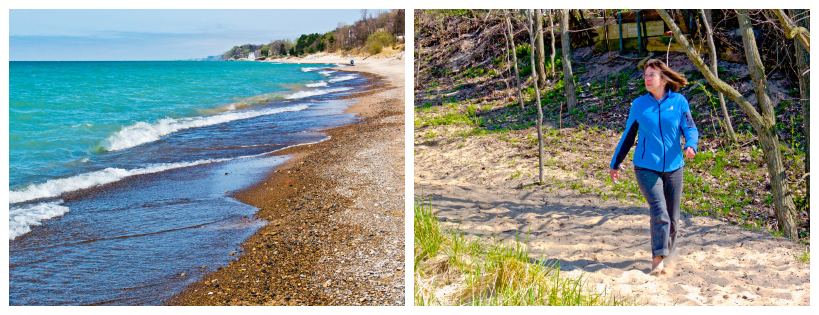
We in the northern latitudes experience a marked lessening of daylight during winter months. Add to that a preponderance of cloudy, rainy, snowy, foggy days in the Great Lakes region, where humidity is high and temperature differentials persist between lake waters, air, and ground, then factor in that most of us work inside all day, and you have makings for a lot of seasonally sad people. Commonly called "the winter blues" or "cabin fever", the condition has also been referred to in psychiatric literature as Seasonal Affective Disorder, or SAD. More recently, SAD is being spoken of as a descriptive point along a continuum of increasingly severe depressive disorders involving both serotonin depletion and melatonin overabundance in the brain. Production of both those naturally occurring neuro-acting chemicals within the brain are moderated by exposure to sunlight. Less exposure to sunlight, you get less serotonin and more melatonin. More exposure to sunlight, you get the reverse. Melatonin promotes sleep. Serotonin mediates feelings of wellbeing and our ability to calmly focus on productive activity. Symptoms of "winter blues" and "cabin fever" include fatigue, sadness, sleepiness, irritability, impatience, anxiety, non-specific aches and pains, social withdrawal, carbohydrate craving, and decreased interest in sex. More severe cases can involve suicidal thoughts, hostility, violence, and major depression. What it feels like is that you have no appetite for things, everything looks and feels the same, and you can't imagine how you ever had any enthusiasm for anything. Because the SAD condition is observed to be so closely tied to light exposure, current thinking is that it is an evolutionary hold-over related to mammalian hibernation, wherein early humans were biologically cued to decrease activity, and therefore expend less energy, during winter months when food resources were scarce. That notion correlates well with the fact that women are often more frequently afflicted with symptoms of SAD than men, especially where it relates to a decrease interest in sex. Getting pregnant during winter months when food is scarce would, of course, not bode well for a developing fetus. Doctor prescribed remedies include regular early in the day doses of strong blue and green light, exercise, vitamin D supplements, and sometimes antidepressant drug therapy. A winter vacation to a sunny destination can also help. Unfortunately, some northerners turn to abusing drugs and alcohol to deleterious physical, mental, interpersonal, and societal consequence. Since most of us are at least a little affected by "winter blues", the bright blue skies, moderating temperatures, glaring sunshine, and busting forth of smells and colors accompanying spring is so very welcomed by our sense starved bodies and brains. The clearing of fog from our minds and the welling of joy within can almost seem like we are being reborn. Spring becomes a wonderfully inspiring new beginning and an entirely welcomed end to a cold, dark, spirit-draining, no fun at all period of feeling irritated, anxious, and glum. Enjoy spring. It's the best. |
• Posted: Mar 31, 2015 13:10:09
• Comments Welcome
• Vote CoolPhotoblogs
• Purchase a Print
• Share
Sunday, March 25th, 2012 Stevensville MI USA |